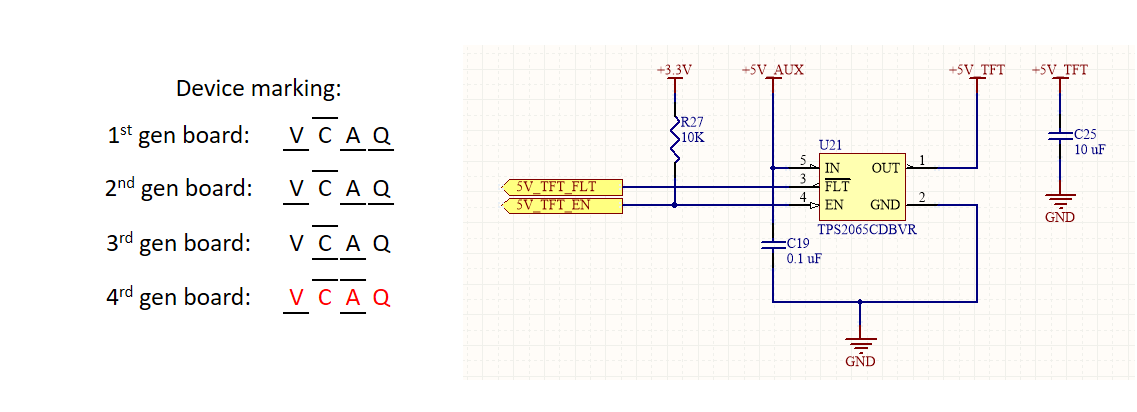Hi,
Consider 2 identical non-isolated (common ground) dcdc converter (say C1 and C2), and 2 TPS2065C groups (say A and B). Vin of A and B are C1 and C2 respectively. The A group is enabled by C1 as usual, but may I enable B with C1 as well? Indeed, in one of our prototypes, I’m burning out all B and no A parts. Can this be the cause? BTW, I have done this before without any problem until now.
Thank you!
Wolfgang


